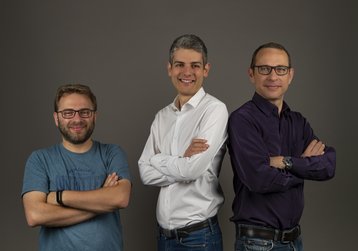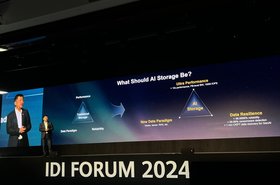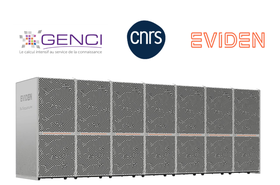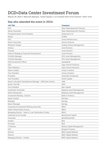Paris-based startup Biomemory has launched new DNA cards that allow owners to store up to one kilobyte of DNA data on a credit card-sized storage device.
It works by converting digital information from binary code into the nucleotides that make up DNA – adenine (A), cytosine (C), guanine (G), and thymine (T), which can then be decoded by the company when the owner wants to access their data.
The cards cost $1,000 and have a lifespan of 150 years, which is both considerably more expensive but much longer lasting than the current average hard drive.
The high cost results from the data needing to be processed and then decoded by a specialized lab that Biomemory has partnered with. The initial conversion process takes around eight hours for the one kilobyte of data.
However, DNA storage is much less energy intensive than existing data storage systems and Biomemory says its DNA card is designed to be recyclable, while its synthesizing process is fully biosourced.
“While storing one kilobyte of data on DNA may seem modest compared to traditional storage methods, it represents a significant breakthrough in DNA storage technology,” CEO Erfane Arwani told TechRadar Pro.
According to Arwani, the company plans to extend the data integrity guarantee to 1,000 and then 10,000 years, while simultaneously aiming to expand the device’s storage capacities to accommodate larger files like photos, documents, and multimedia.
DNA digital data storage is not a new concept and there are a number of other companies working to make this long-term storage solution a viable reality in the face of growing concerns around our ability to continue storing data at current rates.
In 2022, DNA storage company Catalog Technologies encoded 200,000 words of eight Shakespeare tragedies into DNA and made the first step into DNA computation by demonstrating the ability to search for key query terms in the data.
Iridia Inc. is another DNA storage startup based out of California that plans to commercialize its DNA storage-as-a-service offering for archives and cold data storage in 2026.
There are also other approaches to long-term data storage, including Microsoft's Project Silica system, which can currently store 7TB for 10,000 years on glass. Startup Cerabyte also hopes to use laser-etched ceramic to keep data for thousands of years.
Biomemory’s waitlist is currently open, with orders expected to ship in January.








